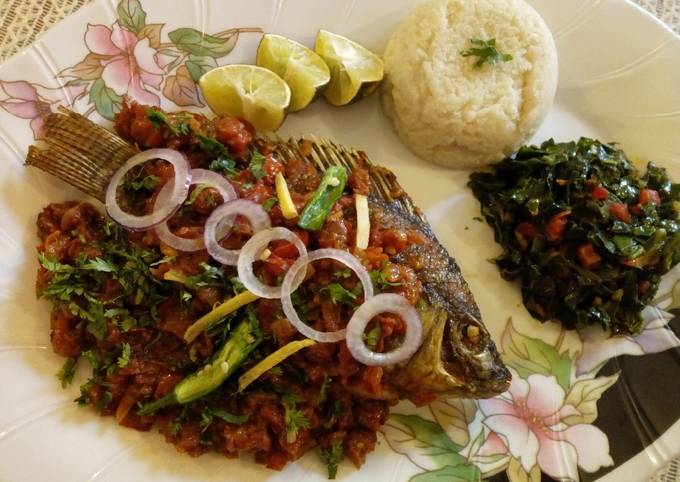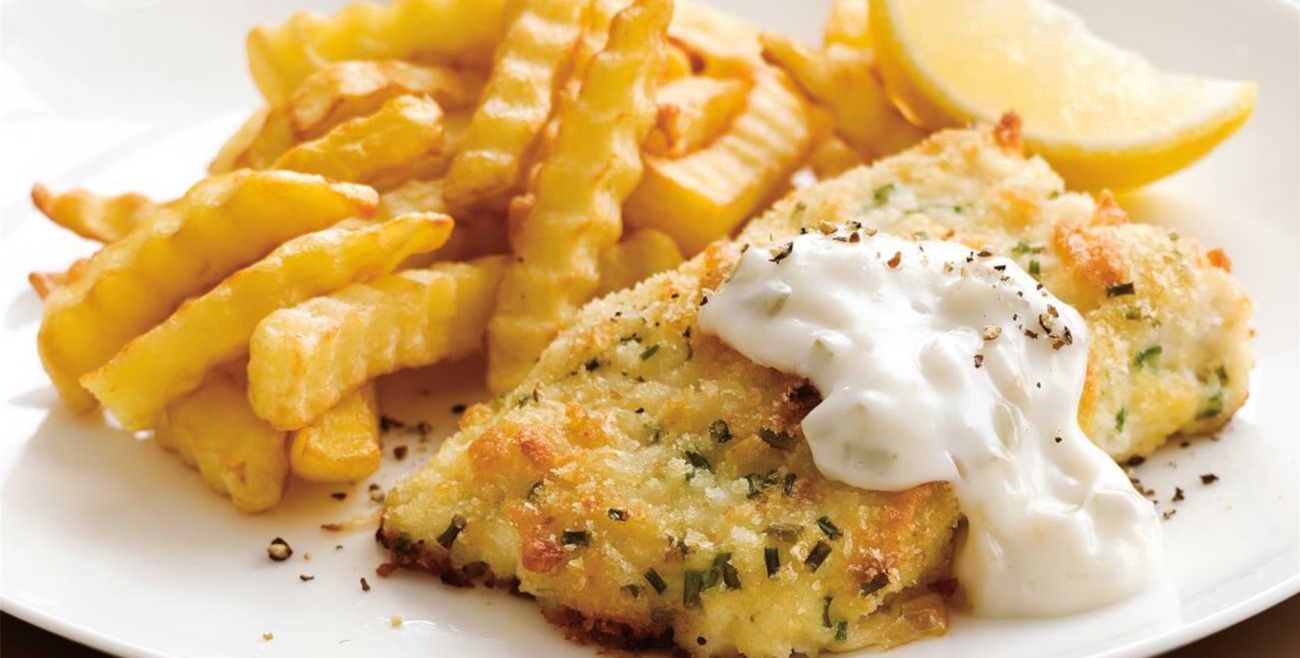How to Cook Trout Fish: A Delectable Guide for All Seafood Lovers
Written By James Morgan
There's nothing like indulging in a deliciously cooked trout dish, especially when you know how to cook trout fish to perfection. Whether you're a seasoned angler or simply looking for a delightful dinner option, trout is an excellent choice. This comprehensive guide will walk you through everything you need to know to become a master at cooking trout fish. From selecting the right trout to exploring various cooking techniques, we've covered it all in this detailed recipe article. Let's dive in and embark on this flavorful journey!

Selecting the Perfect Trout
When it comes to cooking trout fish, the first step is to select the perfect trout. Freshness is key to achieving a delectable dish. When you visit your local seafood market, look for trout that has clear, bright eyes and firm, shiny skin. The flesh should have a mild, oceanic scent, not a strong fishy smell. Trout comes in various types, such as rainbow trout, brook trout, and brown trout, each offering unique flavors and textures. Choose the type that suits your palate and the recipe you're planning to create.

Preparing the Trout
Cleaning and Gutting
Before you start cooking, it's crucial to properly clean and gut the trout. Rinse the fish under cold running water to remove any slime and debris from the skin. To gut the fish, use a sharp knife and make an incision along the belly from the vent to the head. Carefully remove the entrails and rinse the cavity thoroughly. To ensure the best flavor and texture, pat the trout dry with paper towels after cleaning.
Filleting the Trout
If you prefer boneless trout, you can fillet the fish before cooking. Lay the trout on a cutting board and run a fillet knife along the backbone, starting from the head and working towards the tail. Repeat the process on the other side of the fish to remove the second fillet. Once you have the fillets, use tweezers or pliers to remove any remaining pin bones. Filleting the trout ensures a smooth dining experience, free from any unexpected bones.

Marinating the Trout
Marinating trout imparts exquisite flavors and enhances its tenderness. You can create a simple yet flavorful marinade using olive oil, lemon juice, garlic, herbs, and spices. Place the trout fillets in a resealable plastic bag and pour the marinade over them. Ensure the fillets are evenly coated, then seal the bag and refrigerate for at least 30 minutes. This marinating process allows the trout to absorb the delightful flavors, making each bite a true culinary delight.

Cooking Techniques
Grilling Trout
Grilling is a popular method for cooking trout fish, adding a smoky flavor that complements its natural taste. Preheat your grill to medium-high heat and oil the grates to prevent sticking. Place the marinated trout fillets skin-side down on the grill. Cook for about **4-6 minutes** per side, depending on the thickness of the fillets. The skin should become crispy, and the flesh should turn opaque and flaky. For an extra burst of flavor, squeeze some fresh lemon juice over the grilled trout before serving.
Baking Trout
Baking is a convenient and foolproof method for cooking trout fish, allowing you to infuse it with various seasonings. Preheat your oven to **375F (190C)**. Place the marinated trout fillets on a baking sheet lined with parchment paper. You can add slices of lemon, fresh herbs like dill or thyme, and a drizzle of olive oil for added flavor. Bake the trout for about **15-20 minutes**, or until the flesh becomes opaque and flakes easily with a fork. Baking preserves the moisture of the trout, resulting in a tender and succulent dish.
Pan-Searing Trout
For a quick and flavorful meal, pan-searing trout is an excellent choice. Heat a couple of tablespoons of olive oil in a skillet over medium-high heat. Once the oil is hot, place the trout fillets skin-side down in the skillet. Cook for about **3-4 minutes** per side or until the skin becomes crispy and the flesh is opaque. Pan-searing trout creates a delightful contrast between the crispy skin and the tender flesh, making it a truly satisfying dish.
Steaming Trout
Steaming is a healthy and gentle method for cooking trout fish, preserving its delicate flavors and nutrients. You'll need a steamer basket and a large pot with a lid. Fill the pot with about an inch of water and bring it to a simmer. Place the trout fillets in the steamer basket and season them with herbs and lemon slices. Cover the pot with a lid and steam the trout for about **10-12 minutes**, or until the flesh is opaque and flakes easily. Steamed trout is light, tender, and perfect for a nutritious meal.
Serving Suggestions
Now that you know how to cook trout fish using various techniques, it's time to think about how to serve it. Trout pairs wonderfully with a variety of side dishes and accompaniments. Consider serving your trout with roasted vegetables, a fresh salad, or a side of rice. A drizzle of lemon butter sauce or a dollop of garlic aioli can elevate the flavors even further. For a complete meal, add a glass of crisp white wine or a refreshing iced tea.
Essential Tips and Tricks
Avoid Overcooking
One of the most important tips for cooking trout fish is to avoid overcooking. Trout cooks relatively quickly, and overcooking can result in dry and tough flesh. Keep a close eye on the fish while cooking, and use a fork to check for doneness. The flesh should be opaque and flake easily, indicating that the trout is perfectly cooked. If you're grilling, baking, or pan-searing, aim for a slightly crispy skin and tender, juicy flesh.
Use Fresh Herbs
Fresh herbs can enhance the flavors of your cooked trout, adding a burst of aroma and taste. Herbs like dill, thyme, parsley, and cilantro pair beautifully with trout. You can sprinkle fresh herbs over the cooked fillets or incorporate them into marinades and seasoning blends. Fresh herbs not only add flavor but also elevate the presentation of your dish, making it visually appealing and appetizing.
Experiment with Seasonings
While simple seasonings like salt, pepper, and lemon are classic choices for trout, don't be afraid to experiment with different flavor profiles. You can try a variety of spice blends, such as Cajun seasoning, paprika, garlic powder, or even a touch of chili flakes for a hint of heat. The versatility of trout allows you to explore and create unique flavor combinations that suit your taste preferences.
Cleaning and Maintenance
After enjoying your delicious trout meal, it's essential to take care of your cookware and utensils to ensure they last for many more cooking adventures. Proper cleaning and maintenance are crucial for preserving the quality and longevity of your kitchen tools.
Cleaning Cookware
After cooking trout, make sure to clean your cookware thoroughly using the right cleaner. Trout can leave behind oils and residues that can affect the performance of your pots and pans. Use a cookware cleaner that is safe for your specific cookware material, whether it's stainless steel, cast iron, or non-stick. Scrub gently to remove any stubborn residues without damaging the surface.
Maintaining Cutting Boards
Your cutting board is an essential tool in preparing trout, and proper maintenance is key to keeping it in good condition. After each use, wash your cutting board with mild soap and warm water. Avoid soaking it in water, as this can cause the wood to warp. Instead, dry it thoroughly with a clean towel. To maintain the quality of your cutting board, apply a food-safe cutting board oil every few weeks. This helps to prevent the wood from drying out and cracking, ensuring your cutting board stays smooth and durable. You can purchase a high-quality Cutting Board Oil.
Now that you're equipped with all the knowledge and tips on **how to cook trout fish**, you're ready to impress your family and friends with a delectable trout dish. Whether you choose to grill, bake, pan-sear, or steam, each method offers a unique and delightful way to enjoy this flavorful fish. So, head to your kitchen, gather your ingredients and cookware, and get ready to savor the exquisite flavors of perfectly cooked trout!
For more delicious recipes and cooking guides, check out our other articles:
As an Amazon Associate, I earn from qualifying purchases.



